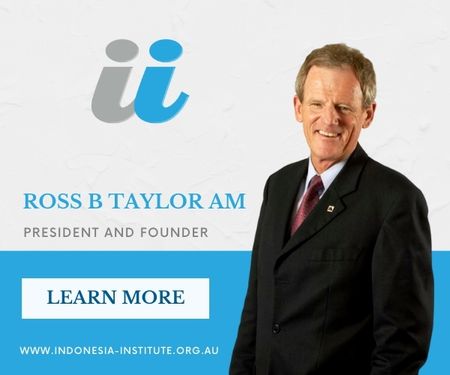BY: RIDVAN KILIC
If stronger “people-to-people” links are the aim, experience
from the world’s oldest living culture offers a guide.
In 1994, then-Australian prime minister, Paul Keating famously said that “no country is more important to Australia than Indonesia”. Yet the relationship has also been a rocky one. Perhaps no two neighbours in the world are as culturally distinct. But the recent turn in Australia to embrace a First Nations foreign policy offers a chance to set ties between the countries on a more stable footing.
Long before European settlement in Australia, Indonesian trepangers (fishers) from the city of Makassar visited the coast of northern Australia from at least the 1600s until the early 1900s. The trepangers collected and processed trepang (sea cucumber) in northern Australia and then sold the valuable commodity to Chinese merchants. During these visits, deep cultural ties were established between the Makassan-Indonesians and the Yolngu people of Arnhem land. This shared history has received scant official attention from Australia in its engagement with Indonesia.
However, Foreign Minister Penny Wong’s recently launched First Nations foreign policy gives Australia an opportunity to include Indigenous voices in its relationship with Indonesia. In March, Justin Mohamed was announced as Australia’s inaugural Ambassador for First Nations People. Mohamed will be responsible for leading efforts to incorporate the First Nations policy across the Department of Foreign Affairs and Trade and lead an Office of First Nations Engagement within the department.
Drawing on the Yolngu people’s perspectives of their Indonesian neighbours can help Australia to strengthen what has long been one of the most challenging parts of the relationship – people-to-people links.
The connections between the Yolngu people and the Makassans had a profound impact on local Indigenous culture, language, and way of life. The Indonesian visitors also married and fathered children with local Aboriginal women. Some of these families relocated to Indonesia with the Makassans.
To further the contemporary relationship there would be benefit in the appointment of First Nations attachés to enhance formal and public diplomacy efforts.
Australia’s First Nations foreign policy aims to embed the unique experiences and perspectives of Indigenous people into Australia’s approach to the world. Involving the Yolngu people to share their history of dealing with Indonesians is one substantive example.
Cultural misapprehensions continue to hamper bilateral relations and contributes to a majority of Australians still mistrusting and lacking widespread knowledge of Indonesians. This extends to parts of the Australian business community, where a transactional relationship with Indonesia is too often the focus. A relational approach is more likely to succeed, embracing principles of mutual respect, co-development, and reciprocity. Such a relational approach has been ingrained in both Aboriginal Australian and Indonesian cultures for centuries and was a feature of ties between the Yolngu people and Makassans to build trust and understanding of their respective cultures and communities.
To further the contemporary relationship there would be benefit in the appointment of First Nations attachés to enhance formal and public diplomacy efforts. One attaché could be based at the Australian embassy in Jakarta, another at the Australian Consulate-General in Makassar, working under DFAT’s developing Office of First Nations Engagement. This could also include the involvement of senior advisers with specialised knowledge of the Yolngu experience. The role should not be ceremonial but a substantive one in driving Canberra’s bilateral relationship with its largest neighbour.
Giving prominence to the voices of First Nations people from Australia will be positively received by Indonesians. It offers a chance to further operationalise Foreign Minister Penny Wong’s goal to “see First Nations perspectives at the heart of Australian foreign policy”. With Indonesia on the cusp of becoming a global political and economic power, predicted to be the fourth-largest economy in the world by 2045, First Nations attachés offer a special chance to break down cultural barriers with Australia’s largest neighbour.





